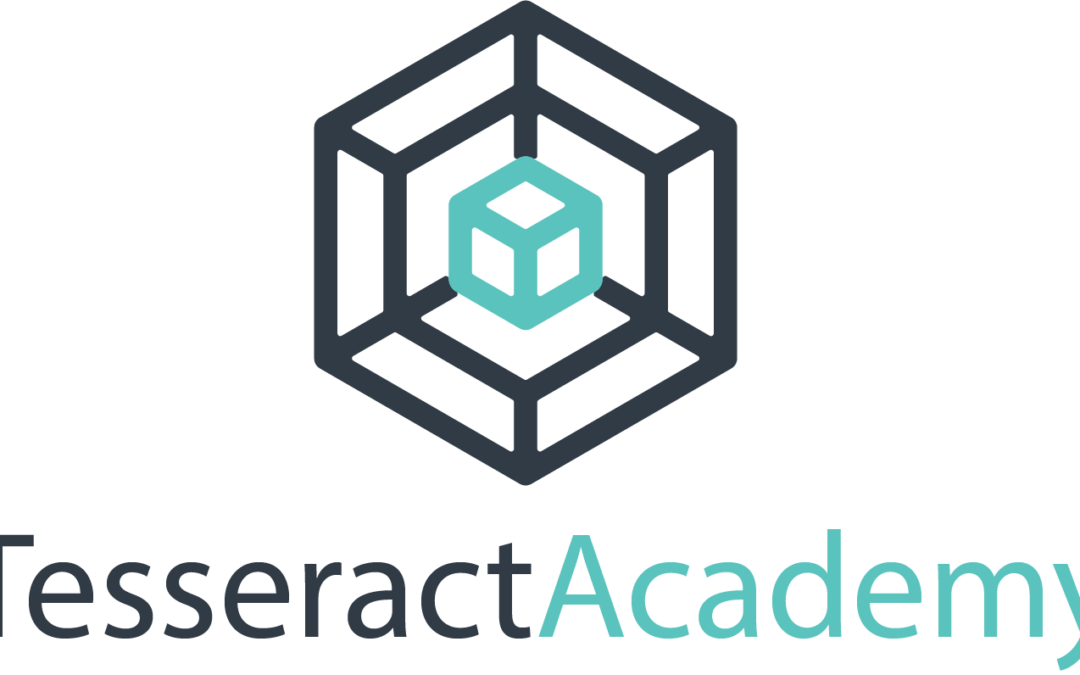Large Language Models (LLMs) have emerged as a powerful tool in the field of software and coding, capable of generating human-like text and performing various language-related tasks.
In this report, we explore the results of a survey we conducted to understand the perceptions and expectations of industry professionals regarding the disruptive potential of LLMs in the software and coding industry.
We asked 15 experts on their opinions and the results were very intriguing. The profession of the respondents included: Software developer, Product manager, Entrepreneur, CEO, Data scientist, Marketing & sales, Project management, Other IT professional, Senior Consultant, Platform Services, Executive Legal and Educator.
Impact on professional landscape
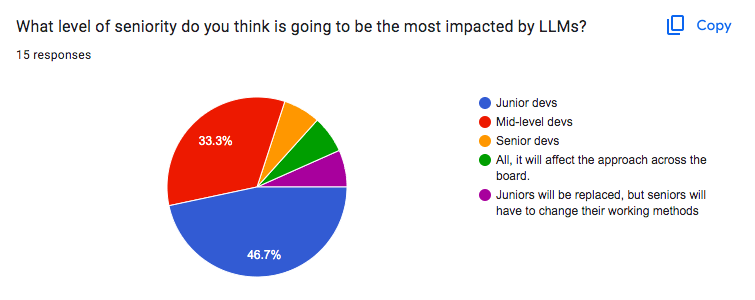
As you can see 46.7% of respondents believe that Junior Devs will be most impacted by LLMs. This suggests that LLMs may have the potential to automate or streamline tasks traditionally assigned to entry-level developers.
Whereas, 33.3% of respondents believe that Medium Devs will be most impacted by LLMs. This indicates that LLMs could affect the responsibilities and roles of mid-level developers, potentially requiring them to adapt to new challenges and opportunities.
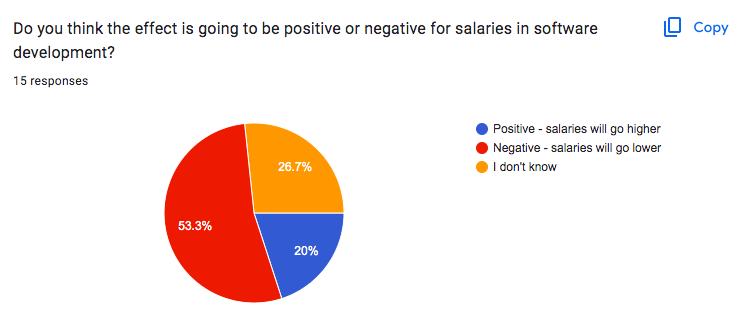
Over half of the respondents (50%+) believe that LLMs will have a negative effect on salaries in software development. Conversely, only 20% of respondents anticipate higher salaries as a result of LLMs. This suggests concerns about potential job displacement and reduced demand for certain coding tasks.
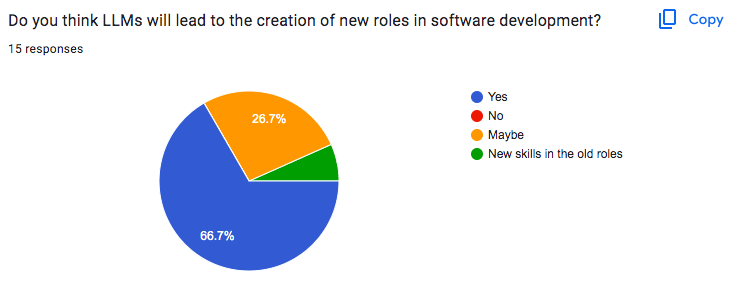
66.7% of respondents believe that LLMs will lead to the creation of new roles in software development. This highlights the potential for LLMs to augment and complement human skills, leading to the emergence of novel job opportunities requiring expertise in working alongside LLMs.
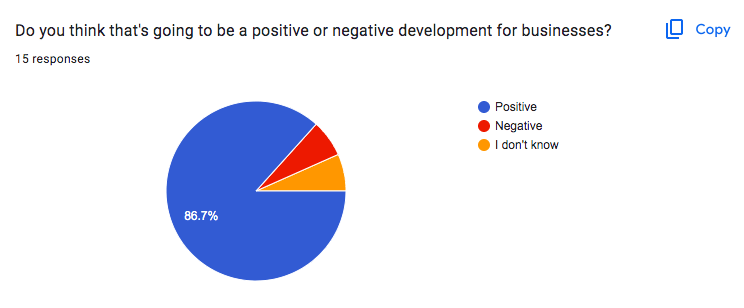
Nearly 90% of respondents believe that LLMs will bring positive developments for businesses. The survey indicates optimism about the potential for LLMs to enhance productivity, efficiency, and innovation within software development teams.
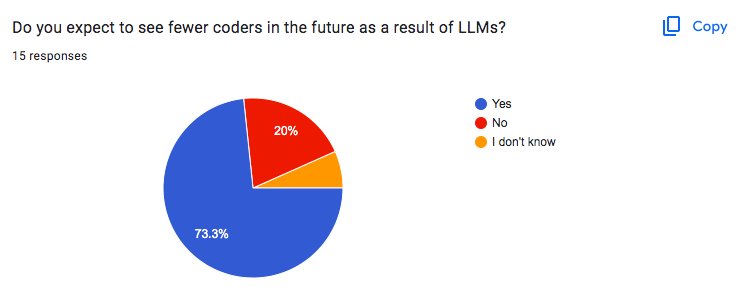
73.3% of respondents expect to see fewer coders in the future as a result of LLMs. This aligns with the idea that LLMs may automate certain coding tasks, reducing the need for manual coding labor. However, it should be noted that 20% of respondents do not anticipate this outcome.
Impact on productivity and business
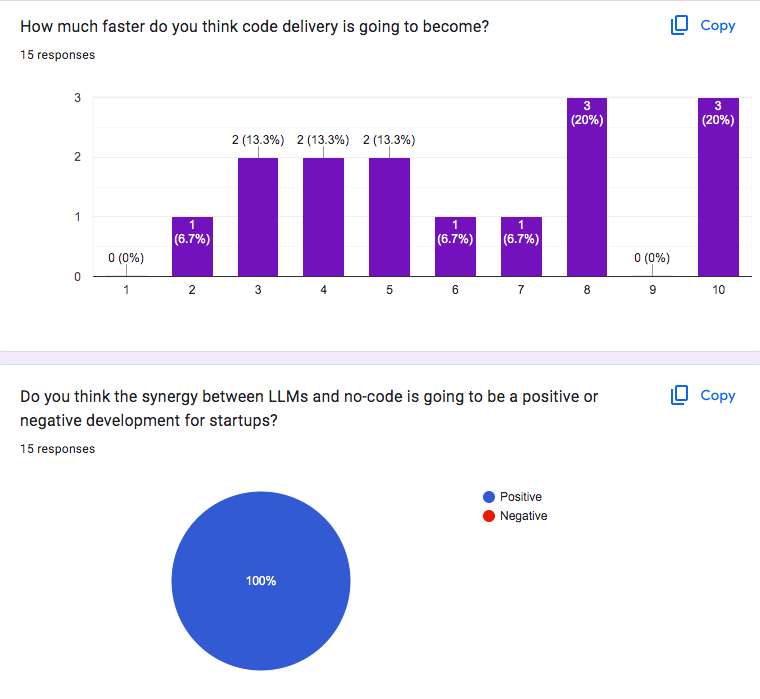
A whooping 100% of respondents believe that the synergy between LLMs and no-code development will be a positive development for startups. This indicates the potential for LLMs to empower non-technical individuals in building software applications, reducing the barriers to entry and fostering innovation.
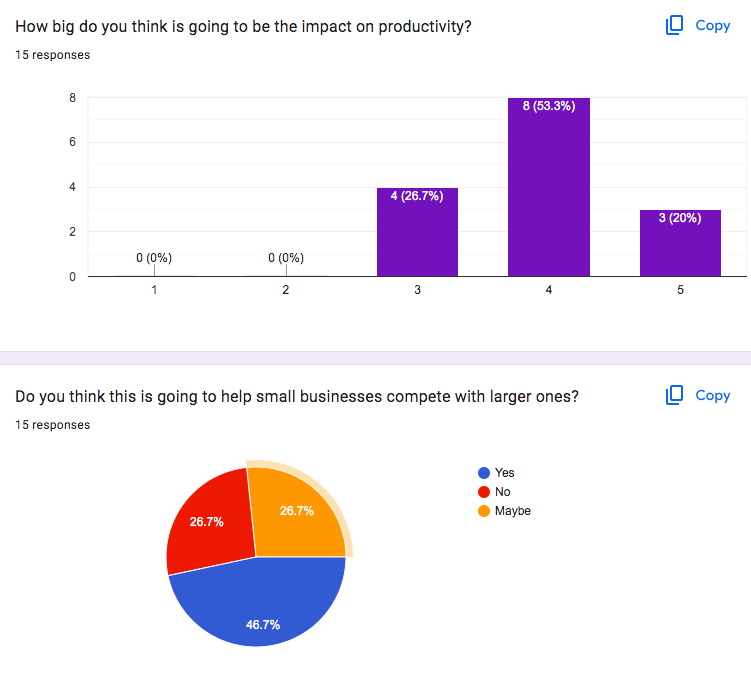
46.7% of respondents believe that LLMs will help small businesses compete with larger ones. This suggests that LLMs may provide small businesses with access to advanced software development capabilities, enabling them to compete on a more level playing field.
The final question the respondents were asked was: How do you personally feel about the developments of LLMs and the impact on the world of software development?
You can see some of the responses below.
“It’s exciting to see where is technology is going. I don’t feel threatened by it yet, it has only aided my own learning and development.”
“I feel positive about it as an entrepreneur. However, as someone with technical experience of 20+ years, I understand that LLMs cannot provide all the answers. Technologies like Chat GPT still need human guidance. And teams and projects still need strategy. We may be able to move faster and smarter together, and that’s a positive.”
“Those who take advantage of the opportunities of LLM will benefit and generate higher income. Those who can only use the new possibilities by default will be replaceable.”
Conclusion
The survey results demonstrate a mixture of anticipation, concern, and optimism regarding the disruptive impact of Large Language Models (LLMs) on the software and coding industry. While respondents believe that LLMs may have a significant impact on junior and medium developers, leading to potential job displacement and changes in salary structures, there is also a recognition of the positive developments LLMs can bring to businesses in terms of productivity, innovation, and the creation of new roles.
Additionally, the survey highlights the potential for LLMs to facilitate the synergy between LLMs and no-code development, benefiting startups and allowing small businesses to compete more effectively. As LLMs continue to evolve and their capabilities are integrated into various aspects of software development, it is essential for industry professionals to adapt their skills and strategies to harness the opportunities presented by LLMs while addressing the potential challenges they may bring.
How can the Tesseract Academy help you?
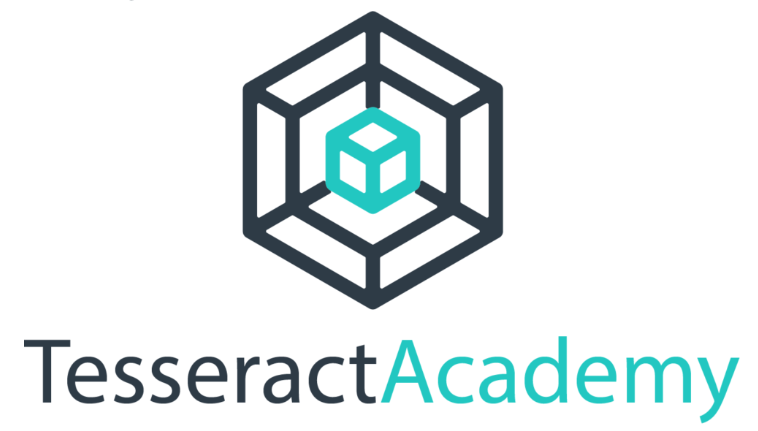
ChatGPT and other AI technologies are expected to automate many routine, repetitive, and low-skilled tasks, freeing up workers to focus on higher-level tasks that require creativity, problem-solving, and critical thinking skills. This will lead to an increased demand for workers with these higher-level skills and a decreased demand for workers who perform routine tasks.
The Tesseract Academy can help senior professionals and businesses prepare for the AI-driven future by offering training and education in these emerging fields.
The Tesseract Academy‘s mission is to help the leaders of tomorrow thrive in a digital world.
- We help senior professionals and leaders become AI and Web3.0 literate through our program. Apply now for free to reserve a spot!
- If you are a business owner, we can transform your business using AI within 6 weeks (otherwise we give your money back). Learn more about our AI transformation program.
Get in touch if you have any questions.

